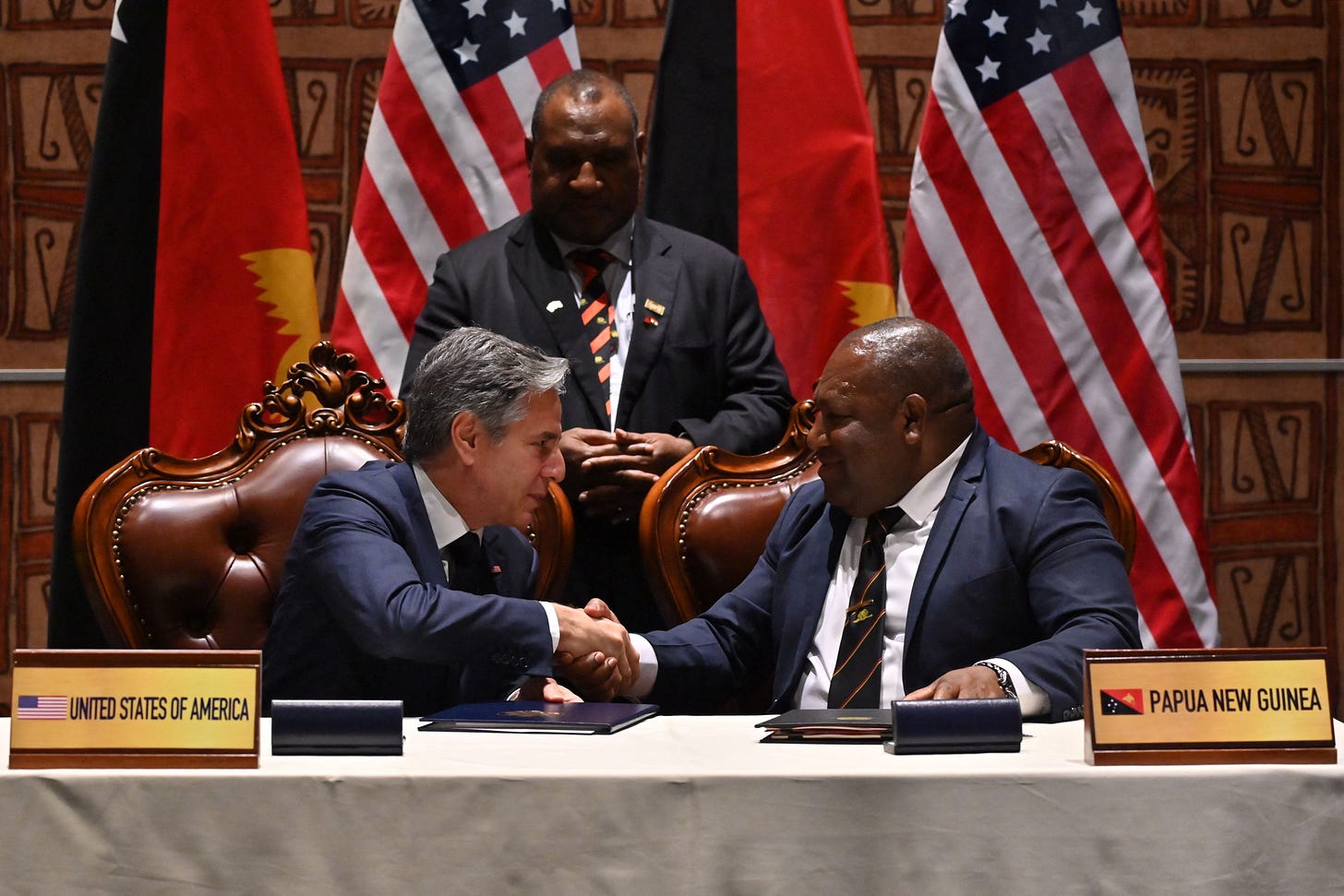TL(PM) DIGEST: Hitting back against fentanyl
Plus a new defense cooperation deal with Papua New Guinea, lessons from a poll of America's most and least respected companies, and China finally sends a new ambassador to Washington

1. Congress gets closer to actually fighting America’s fentanyl scourge
What happened? Politico reports on two bill…
Keep reading with a 7-day free trial
Subscribe to The Liberal Patriot to keep reading this post and get 7 days of free access to the full post archives.




